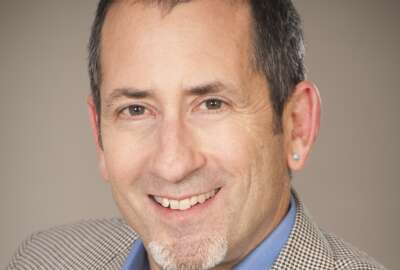
HHS sojourns in Cuba
At first blush a cooperative agreement between HHS and its Cuban counterpart seems absurd, given the shambling condition of Cuba's medical system.
Fidel Castro — one-time eager host to Soviet nuclear missiles — has been affecting the U.S. political scene forever. Or it seems that way. Well, good riddance.
The brother, Raul, has been putatively running the country for the last decade. He’s no bargain either. Unclear yet is how President-elect Donald Trump will deal with the new Cuba policy of the Obama administration. I’m hoping he can find a way to an openness that actually helps the average Cuban and not simply enabling Raul and Co. A program at Health and Human Services, under a memorandum of agreement with the Cuban health ministry, might be one way,

I want to call your attention to an interview with Ambassador Jimmy Kolker, a former State Department career diplomat with international health chops. He’s now a deputy Health and Human Service secretary for global affairs. He’s been spearheading an effort to cooperate with the Cuban Health Ministry. When HHS posted a blog entry about the project, it sounded intriguing.
At first blush it seems absurd, given the shambling condition of Cuba’s medical system. A photo shows Secretary Sylvia Burwell being conducted by Cuban Health Minister Roberto Morales Ojeda through a Havana medical facility that looks clean and bright, if spartan — as if it was rehabbed by Benjamin Moore. The beds lie beneath neatly applied sheets, sheets not being a given in Cuban hospitals.
Earlier Cuban medical officials had visited the U.S. in a round of grip ‘n’ grins. The tour here included the Centers for Disease Control and Prevention.
This might never have been on the short list of to-dos for CDC Director Tom Frieden or even Burwell, but cabinet secretaries are obligated to follow administration direction. On the other hand, Cuba actually has a historical legacy of high-quality medical care. Thus an agreement between the two public health agencies to cooperate on certain projects.
What I learned from Kolker is that HHS is focusing on specific health topics, such as seeing whether a Cuban-developed cancer drug can be sold in the U.S. (it’s sold elsewhere overseas). Kolker says it would have to go through the same FDA process as any other foreign drug. Cuba has also had success, Kolker says, preventing infections in diabetics. Both countries have an interest in Alzheimer’s disease because of aging populations. Some Cuban researchers will also be able to participate in work done by the CDC.
Kolker emphasizes that the purpose of the partnership is to benefit public health in the U.S. and Cuba, but it’s not a development program for the island.
Cuban people, by exiting their beleaguered island en masse, have contributed much to the U.S. And not just Desi Arnaz (whose family fled Batista) and Roberto Goizueta, although I have friends whose parents retired on Coca Cola stock. There’s a little Cuban restaurant on Rockville Pike I’m fond of. I sometimes chat with the owner about the dream of Cuban freedom. The walls of the restaurant are covered with hundreds of small, white, Plexiglas plaques, each commemorating a famous or highly accomplished Cuban emigre. It makes for an astonishing display.
Cuba is still unfree, and the average Cuban doesn’t have access to the health care facilities the rulers there like to show off. From what I’ve read, Cuban health facilities run the gamut from world class to the worst of the third world. Maybe HHS can start to raise the average there.
Copyright © 2025 Federal News Network. All rights reserved. This website is not intended for users located within the European Economic Area.
Tom Temin is host of the Federal Drive and has been providing insight on federal technology and management issues for more than 30 years.
Follow @tteminWFED






